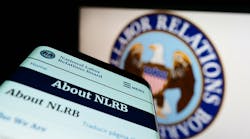Please allow me to introduce you to a word you will soon need to use frequently while rewriting your employee management policies: accommodation.
You may already use it regarding “reasonable accommodation” for disabled employees under the Americans with Disabilities Act (ADA), but you may not be aware of many more areas where you must accommodate employees. Following are just a few:
Pregnancy
A Supreme Court ruling earlier this year in a case involving a pregnant UPS worker means that employers must accommodate expectant employees under federal law. What makes the decision a bit confusing is that while the plaintiff had brought suit under the ADA, the court said that particular law does not apply, and the case should be decided instead by a lower court under the federal civil rights law ban on discrimination against women.
In doing so the High Court also struck down an Equal Employment Opportunity Commission guidance for employers adopted last year also based on ADA protections, and EEOC acted quickly to revise the guidance accordingly. The ruling leaves intact state laws protecting pregnant employees. Since last year this list has expanded to include Nebraska, Minnesota, Delaware, West Virginia, Florida (which went into effect July 1) and the District of Columbia.
The bottom line is that if you have policies to accommodate male employees for recovery from injuries or illnesses, such as providing them with temporary light duty, you have to provide the same for pregnant female employees.
Same-sex Marriage
The Supreme Court ruling that allows same-sex marriages throughout all of the United States has a major impact on employee policies and laws that mandate benefits for spouses of employees. The most immediate of these regards the Family and Medical Leave Act (FMLA).
The Department of Labor had changed the definition of “spouse” in the FMLA to include same-sex married couples, effective March 27. Months before the Supreme Court ruling, DOL said that such marriages must be recognized based on “the place of celebration” instead of their state of residence if it banned same-sex marriage.
However, after Texas, Arkansas, Louisiana and Nebraska challenged the guidance in court for violating their same-sex marriage bans, a federal judge stayed the DOL action in those states. That court stay is moot now and employers everywhere must recognize same-sex marriages in regard to the FMLA and other benefits.
Transgender Discrimination
Although recently a hot topic in the news, movies and on TV, you may not be aware that EEOC declared transgender discrimination a target and has been pursuing employers over transgender accommodation since 2012, targeting verbal harassment and refusal to grant transgender bathroom requests in companies with more than 15 employees.
Now OSHA has gotten into the act. On June 1 the agency issued employers “best practices” guidance dealing with transgender bathroom issues, which it characterized as a safety and health matter. OSHA also announced an alliance with the National Center for Transgender Equality, described as a national social justice advocacy organization for transgender people, committing OSHA to “jointly work with the NCTE to develop products and guidance materials to improve workplace safety and health for all workers,” says David Michaels, an OSHA administrator.
OSHA urges employers to write bathroom policies allowing transgender employees to pick their most appropriate and safest option. OSHA cited as an employer best practice not asking employees “to provide any medical or legal documentation of their gender identity in order to have access to gender-appropriate facilities.” OSHA said employers also may offer options such as single-occupancy, gender-neutral facilities, or multiple occupant, gender-neutral restroom facilities with lockable single occupant stalls these employees may choose to use or not use as they see fit.



